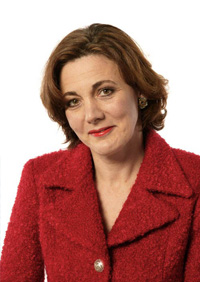THURSDAY, 10 NOVEMBER 2011
Vivienne Parry, BBC presenter, opened her presentation by discussing some of the accusations that scientists often aim at the media. Mistakes, she argued, are rarely due to poor journalism, but are more often because of poor communication on the part of the scientists. Journalists love scientific findings as they are often high impact or have a strong element of human interest. Science provides both the novelty and the sorts of underdogs that the public wants to hear about. So why does our relationship with the media so often break down?Parry suggested that it is often the scientific community itself that prevents good, interesting science being communicated in the media. Many involved in science publicity have found themselves ridiculed by their scientific colleagues because of the strange notion that good communicators must be bad scientists. This is exemplified by high profile stories where one willing quack becomes the centre of attention whilst scientists with strong evidence on the argument remain silent in the background. It is often the mavericks with strange ideas that go in search of media attention and are willing to accept offers of airtime whilst others shy away from the limelight.
To help more scientists to share their research with the public, Parry presented her ten top tips for talking to the media. She mentioned the need to read and listen widely to understand the styles and viewpoints that are popular in different media outlets. The different speed of the media world was also highlighted, illustrating the need to respond quickly to requests from journalists for information. Don’t put it off to next week or someone else will get there before you. Avoid jargon. Don’t wear patterned clothes if you’re on film. Find out who else will be there. Be aware of deadlines, be relaxed and authoritative and always show enthusiasm for your subject. Most importantly, irrespective of what the interviewer asks you about, make sure you get your message across to the audience!
Parry’s presentation ended with a chance for audience participation. She briefly asked several audience members about their research work and then interviewed two of her ‘victims’ more thoroughly, helping them to explain solid state physics and African sleeping sickness to a general audience. She also emphasised that you should try to stay relaxed when being interviewed and to have a maximum of just three facts in any one explanation.
The audience, which consisted of a broad range of scientific researchers from undergraduates to retired professors, enjoyed the event and engaged with Vivienne in some fascinating discussion following the presentation. Hopefully, many were encouraged to engage more with the media in future.
Written by Jonathan Lawson

